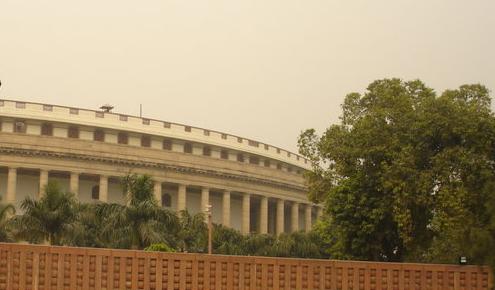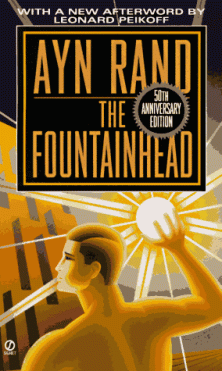
(Indian Parliament, src: Wikipedia Commons)
A long time ago back in high school, when I was probably in my 9th or 10th grade, we had an essay writing competition on ’50 years of Indian independence’, which I took part in. Having been abroad for a lot of my childhood, I did not harbor as much patriotism for my country back then as most of my friends, and was often very critical of India, often annoyingly so. Anyway, I remember writing in that essay that the Indian government really meant nothing to me, and that I felt no patriotism towards a country that was corrupt and sustained societies filled with stone-age customs like the caste system and dowry. 50 years since gaining independence, I argued, we have nothing much to be proud of.
To say the least, my essay was controversial :-P and I really thought that I would be summoned by the vice principal… in fact, my English teacher even told me that this very summoning was going to happen pretty soon. Word went out far and wide and I was asked about it by a friend in church that Sunday (who wasn’t even studying in my school anymore, but heard of it through his sister’s friend!). There were thinly veiled comments at me all through that week during English class, and I was quite nervous about the whole thing, quite frankly.
Luckily for me, nothing much happened and the incident was slowly forgotten by everyone… whew!
The reason I remembered this a few days ago was because one of my good friends from school who recently saw this site was shocked that I was following politics so closely… You see, I have always been quite apathetic towards politics, and to me, it was always a dirty ‘word’ , and a dirty ‘world’ as well. I blame Indian politicians for this, for the crores worth of scandals they were involved in at the time made me hate the system so much that I was just left with nothing more than apathy for my country.
It is true that American politics is relatively ‘cleaner’ than Indian politics, but in concept, both are much the same. It is still ‘politics as usual’. If Indians have bribes, the Americans have lobbies. If Indians are bogged down by caste politics, the Americans are bogged down by race politics. So what has really changed, and why have I stopped ‘not giving a damn’ about politics any more? Some might say it’s all a part of growing up, but that is actually a very broad answer… there is something a lot more specific than that. Well, the answer is simple:
It lies in another dirty word, called Taxes.
When we were back in school, it was ‘them’ against ‘us’. But now that we are earning, it is ‘them with our money‘ against ‘us’. Reading the Fountainhead has all the more increased my awareness of what is really going on, and seeing things from an individualistic point of view, I am forced to ask myself – what do I gain by giving a portion of my wealth to society through taxes? I will get back to this at the very end.
Universal health care is a system where the government helps reduce the costs of health care… those of you in the United States will know how exorbitantly priced a visit to a doctor is, or the cost of a simple X-ray or test. The following is a diagram of countries attempting Universal Health Care. Please enlarge this and spend at least 2 minutes looking at the countries and the description on the bottom-left corner of the image before you continue:
(src: Wikipedia commons)
If the above diagram is to be believed, and I hope it is, for the editors would have surely been careful on such an important topic, then there are two very interesting observations to be made:
- The US is the only developed country with no universal health care in place
- Iraq and Afghanistan have universal health care paid for by the US war budget
So what does this mean to every person currently employed in the United States, myself included? It simply means that I will:
- Pay for the bombing of Iraq and Afghanistan
- Pay for the injuries of the Iraqi and Afghani civilians
- but I will be left fending for myself if I get hurt here in the USA !
.
.
And that, my friends, is why I follow politics… to be aware of how my money is being spent – not my country’s money, not my government’s money, not my parents’ money – but mine. To know who is out there to rip me off, and who is out there with policies that benefit me and the people I care about. It really can’t get any more selfish than that – to hope that the money you worked so hard to earn benefits you in the best way possible. After all, we expect ‘value for money’ in every product we buy and every service we pay for – There is no reason that we should expect any less from our government.
[ Please read the amazing collection of ‘Where your taxes go‘ articles by Amit Verma from the India Uncut blog to see how else your money is being spent, if you are in India. This one was particularly alarming ]



